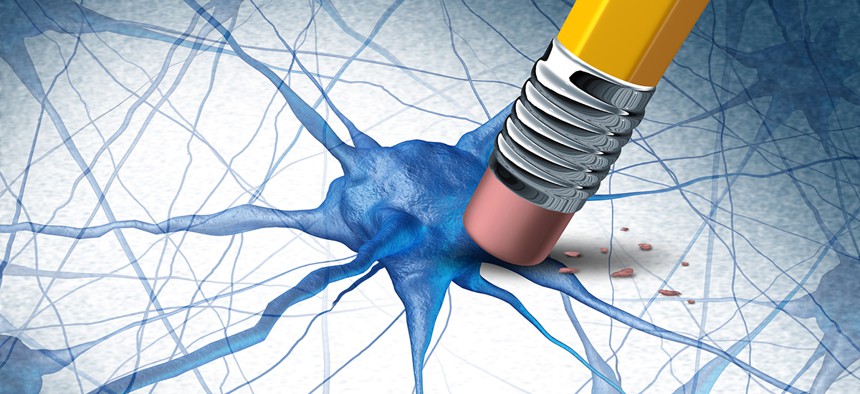Scientists Created Mobile Game to Help Detect Early Onset of Dementia

Lightspring/Shutterstock.com
Gaming to help advance Alzheimer’s research in the real world.
In the mobile video game Sea Hero Quest, you play an ocean explorer recovering your aging sailor father’s lost memories. But along the way, you’re also helping advance Alzheimer’s research in the real world.
Everything you do becomes a data point for scientists to use later on. You move through mazes and shoot flairs, so your spatial navigation and orientation skills can be evaluated. The gameplay is scattered with obstacles like icebergs, islands, marshes and volcanoes so the researchers can gain insights on how a typical person circumvents them. In certain levels, players memorize positions of different checkpoints on a map before navigating to them, which helps the scientists assess their ability to remember and discover specific locations.
The collaboration between Alzheimer’s Research UK, Deutsche Telekom, game designers Glitchers and dementia scientists, is pioneering a massive crowd-sourced database on human spatial navigation. Over 47 million people in the world suffer from dementia; Alzheimer’s disease is the most form of dementia, accounting for 60 percent to 70 percent of cases. These disease affects parts of the brain that process visual information and deal with spatial awareness.
Currently, there is not nearly enough funding for research into the illness. A mobile game like this is not only a low-cost way to gather data, but can also overcome real-world geographic and language barriers to create a large-scale, cross-country study of the disease. In this first phase of the project, the goal was to set a baseline for how the general population fares when it comes to spatial awareness. The researchers have already collected over 790 months of gameplay, amounting to 9,500 years worth of data, according to their website.
“The more we can find out about how people find their way around, the better we can understand the problems that people might get in dementia,” neuroscientist Hugo Spiers from University College London said in a video introducing the project in May. Since its launch, over 2.4 million people from across the world have played the free game, available on the iTunes Store and Google Play. (Not everyone finished the game, comprising of over 75 levels, but data from each level can be analyzed separately.)
Before the game begins, it collects some basic demographic data: gender, age and where you live. As players move around the game, their positions create heat maps relayed back to scientists. This data is analyzed to show navigational decision-making in different conditions.
Alzheimer’s disease affects parts of the brain that process visual information and deal with spatial awareness. Spiers shared the initial findings from the mass experiment at a November 2016 conference in San Diego:
- From age 19 onward, spatial recognition gets worse every year. At 19, people could remember their starting point and accurately hit it by shooting a flare back to that position 74 percent of the time. Those aged 75 succeeded 46 percent of the time.
- Men seem to perform better than women on specific tasks. (This could be because they are better navigators or they have more experience as gamers since childhood.)
- People from Nordic countries like Finland and Denmark fared better than the rest of the world. (Researchers haven’t been able to pinpoint why.)
Next summer, the team is planning on taking the game into clinical trials to target dementia patients. They can then compare their performance to the benchmark created by the normal population.
NEXT STORY: ID management without the Big Brother baggage





